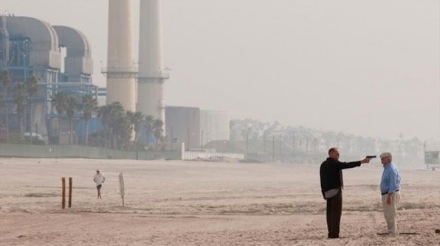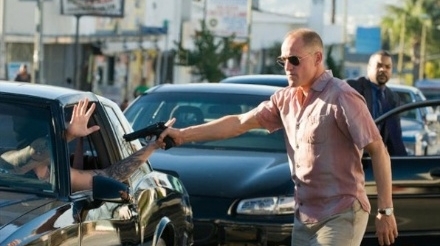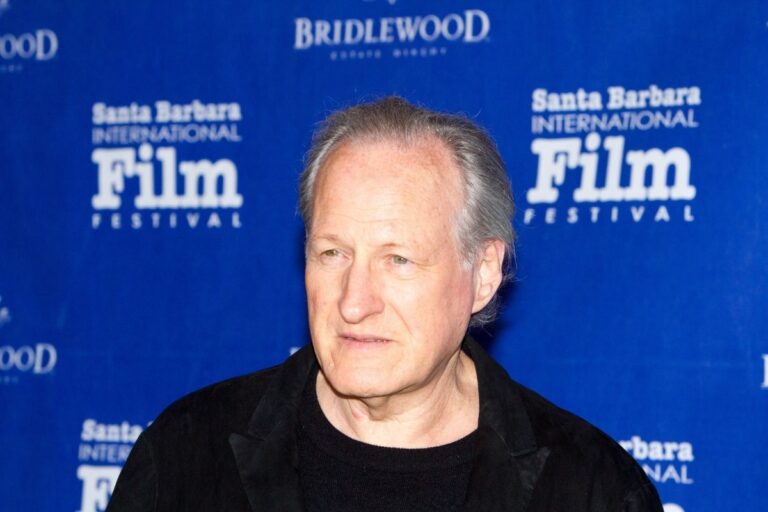Rampart
Directed by Oren Moverman
Written by James Ellroy and Oren Moverman
Starring Woody Harrelson, Cynthia Nixon, Robin Wright, Sigourney Weaver, Anne Heche & Steve Buscemi
Two years ago debut director Oren Moverman directed Woody Harrelson to his second Oscar nomination with The Messenger, an under-seen and unappreciated home-front military drama, with next years Rampart, an LA bad-cop drama he may have just provided his muse with a sweltering part that could embezzle the coveted gold statuette come next February. Pilfered from the mind of LA crime savant James Ellroy we’re billy-clubbed into a blistering Los Angeles, circa 1999, and the Rampart division of the City of Angels black and whites are embroiled in a tornado of controversy, following allegations of widespread corruption, witness beatings, suspect kickbacks and violent apprehensions. With twenty-four years on the force David Brown (Harrelson) has a somewhat complicated life – his two ex-wives are sisters (Cynthia Nixon & Anne Heche) who live adjacent to each other with a daughter each from their respective marriages to our hard drinking, adulterous anti-hero. Brown sleeps around and drinks too much, and has been hounded by allegations of impropriety since he shot and killed a serial rapist some years ago, earning him the charming sobriquet of ‘date-rape’ from his law enforcement colleagues. Mocked by his eldest daughter and barely tolerated by his ex-wives Brown’s career is sent into a tailspin after he is taped beating a suspect to near death, and after striking up a destructive relationship with an alcoholic self hating lawyer (Robin Wright) he can only trust his private confidant, a retired cop played by Ned Beatty, an octopi crime figure who knows where the bodies are buried and who may or may not have clandestine motives of his own.
Rampart is aiming more for a sunshine coast The Wire than a nervous Lethal Weapon with its portrayal of a cracked cop under increasing duress, with a sole emphasis on David’s predicament and process rather than scenes of klaxon blaring chases or scolding shoot-outs it is shot on a heavily grained digitial stock which yearns for a gritter Michael Mann Angelino vibe, yet falls somewhat short of its infernal aspirations. The title serves dual purpose as the framing real life story of the CRASH unit controversy of the late nineties, and the notion of a man erecting all the defences he can psychologically and physically muster as he is targeted for past transgressions by enemies unknown. Some detractors have expressed exasperation at the films overt stylistics and it is over-directed to be sure, with some flashy flourishes which occasionally work (the hallucinatory club scene) and some obtrusive moments (an office interogation where the camera pans until the character drops out of frame before cutting to the next character) that distastefully jerk you out of the picture, but Harrelson’s performance is worth the price of admission alone as a haughty emasculated patriarch whose life is slowly coming apart at the seams, as he commands the screen with a lip smacking, desperate hunger. The paranoia builds incrementally and soon Brown comes to trust no-one, even when he reveals his submerged nature in a manufactured execution you wonder whether he has been pushed into this desperate dilemma, as his charm and charisma retain some sympathy for his plight due to an unfocused and poorly portrayed plot point. We should have seen more of both Wright and Beatty which could both be more interesting that their peripheral sketching attests, and brief turns from Steve Buscemi as a aspiring politician and Sigourney Weaver as a purse lipped civilian lawyer seem wasted in the attempt to pursue a genuine, moral hecate. Ellroy is the cartographer of lawmen with skewed moral values enforced by repeated exposure to the hell of the streets, but this translation of his reportage seems diluted, as Brown’s history is intimated rather than explored. Nevertheless Harrelson is superb and seems certain of accolades, and Moverman with his second film repeats an arresting performance, a Yin yang street ambiguity that counterfeits Refn’s Drive, so it seems as if the city of angels still contains golden contraband after all.
– John McEntee




